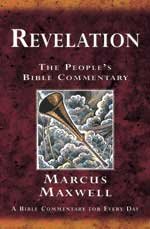Nothing special here, but I was asked to record a short talk for next Sunday, and decided to speak about the gospel reading. In case anyone is interested, here it is...
Have you ever known that you should do something that's right, but not done it anyway?
I thought we'd have a look at our gospel reading from Mark 6.14-29 It's a well known story, the death of John the Baptist, but it repays a bit of study. So here are some thoughts on the bible text, the history behind it, and what it says to me - and hopefully to us all - here and now.
Who is Jesus? It's a question that runs through Mark's gospel. Speculation is rife, and wild - though as it turns out, not nearly wild enough! Among the wonderers is Herod Antipas, who sees in Jesus a re-run of John the Baptist.
When big bad king Herod the Great died, his kingdom was split between three of his sons, who became not kings, but tetrachs - a lower rank in the Roman empire - sort of provincial governors.
The one we meet in the gospels is Herod Antipas, tetrach of Galilee, though he was no doubt locally called the king, as in Mark's gospel.
The trouble that led to John's death began when Herod married his half-niece, Herodias, the ex-wife of his half-brother, also called Herod. According to the first centry Jewish historian, Josephus, it was actually her daughter, Salome, who married another half-brother, Philip, but if Mark is a bit confused, or reflects popular understanding which was also confused, it's hardly surprising. The Herod family was a great sprawling affair of incestuous relationships, literal back-stabbings and deceit.
It would seem that Herodias, a Roman citizen, had divorced her husband using Roman law, but by Jewish law remained married, since among Jews, only men could initiate divorce. So in John's eyes, and those of the common people, she was still married to her first husband. To make matters worse, by Jewish law, a man could not marry his brother's wife, even if the brother was dead, so Herod and Herodias's marriage was wrong on two counts.
Since John was not someone to mince his words, and was a popular preacher, this would mean that Herod was held in pretty low esteem by the public - which would in itself raise the risk of rebellion in a population which was already notorious for its anti-Roman, and therefore anti-Roman puppet-ruler sentiments.
So when Josephus says that John was executed for fear that he might foment rebellion, it's not as far as it might seem from Mark's version of the story; his preaching can only undermine Herod's rule.
As for Herodias, she's none too chuffed to be labelled an adulterer and bigamist. She hates John with a vengeance.
And that, you might think, would spell the end of the prophet.
Except... Herod is fascinated by him. He knows, deep down, that John is right. He recognises that here is someone in tune with God, and speaking truth even in the face of huge power.
He can't not listen, but he can't bring himself to repent - he knows what is right, but he can't do it.
We can hear echoes of the conflict between Elijah and king Ahab and his queen Jezebel. There, Ahab had a grudging respect for the prophet, but Jezebel wanted Elijah dead. And surely Mark expects us to pick that up. Later in the gospel Jesus will describe John as the long-awaited return, at least in spirit, of Elijah, the forerunner of the Messiah.
And in John's death there is a foreshadowing of Jesus' own death - the political ruler who recognises his innocence, but who gives way to fear and expediency rather than stand firm for what is right.
And so it hangs in the balance until Herodias seizes her chance at Herod's birthday party. He was well known for extravagant parties, and here he is, surrounded by his political supporters, his clients and dependents who help to secure his power base, and he makes an extravagant offer to the young princess who dances for him.
(A quick aside - NRSV says it was "his daughter Herodias" becasue that is the reading of the best old manuscripts, but it doesn't really make sense, so the usual "daughter of Herodias" is the better choice, so we'll stick with that.)
Up to half my kingdom is a bit of traditional storytelling by either Mark or Herod - no authority to do that anyway, as Roman client - but it marks out the generosity which Herod wants to display - the kind of generosity which shows him to be a powerful patron, one to command respect. And it's that desire to be seen in a commendable light that backs him into a corner.
He can't say no, or his pretence to power and authority are blown away like straw in the wind. Half a kingdom is acceptable exaggeration. The head of a rabble rouser is not.
So back to my opening question. Have you ever known something to be right, and chosen not to do it? Of course you have. We all have. It could be averting our eyes from a collecting tin because it's just too much trouble to dig out a coin from our pocket. It could be putting too high a figure in a box on an expenses form or two low a one on a tax return. It could be passing laws to enforce wearing masks and keeping your distance, and not doing it yourself. Or much worse things.
And have you ever worried about how people see you? I know I have. I certainly don't want to appear as I really am! What would I be prepared to do to maintain the public face? How much shame could bear? What sort of lies might I tell to keep up appearances? HopefullyI wouldn't kill someone but...
On reflection, I wonder whether John the Baptist is the true victim of this tragic story. It's a tale of an honest and upright person being sacrificed on the altar of a powerful person's pride and ambition; a story that has its parallels throughout history, and certainly in our own time.
But perhaps in the end, the one who suffers is Herod himself. He has been brought face to face with his failures and sins. He has been fascinated by the light it has cast on his own transgressions and weakness. But in the end he has done nothing, and has cast away the chance of repentence. Perhaps of salvation itself.
Jn 3.19 tells us that in Christ, "light has come into the world, and people loved darkness rather than light, because their deeds were evil."
Do we, like Herod, squander the chance of repentence when it is offered to us? When the light suddenly shines on the darker parts of our life, do we too scurry away? Or do we seize the moment and turn to the light, to find hope, healing and renewal, painful though that turning may be?

